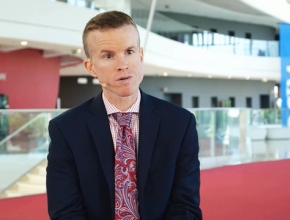What symptoms could be helpful in differentiating between poisoning with novel psychoactive substances and psychosis?
Dan Perri: There is a significant overlap between patients with chronic mental health issues in psychiatric diagnoses and the use of these agents. For the most part, one of the highest risks in the illicit substances–using group would be patients with chronic mental health disease. We certainly see an overlap in some of the symptomatology and the presentation, and the patients with underlying psychiatric diseases can certainly have the disease worsened or unmasked by some of these drugs.
For initial presentations, the side effects and the toxic effects of these compounds are fairly short-lived, usually in hours. It becomes an issue beyond 24-48 hours’ worth of symptoms. When the symptoms do exist for periods of time such as those, the possibility of some alternate diagnosis to a toxic ingestion needs to be entertained and that is where potentially psychiatrists can help screen and take the history and carefully be involved in the care of the patient with regards to finding an underlying psychiatric diagnosis.
The one thing of note is, while most patients do get agitated and can have psychosis and hallucinations, not everyone is violent on these agents, but there is an increased violence risk for patients with underlying psychiatric disorders. In terms of the paranoia and hallucinations and aggression, if a patient does present with a lot of aggressive, violent behaviors, there is a greater chance that they may have an underlying psychiatric disorder, not just a toxidrome.
 English
English
 Español
Español
 українська
українська











